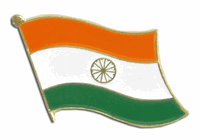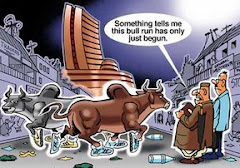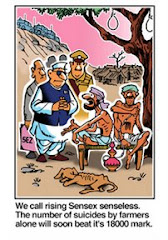NEW YORK (Reuters) - Handcuffed and haggard, IMF chief Dominique Strauss-Kahn was escorted by detectives from a New York police station on Sunday night in his first public appearance since being accused of trying to rape a hotel maid.
Strauss-Kahn, the early favorite in France's presidential election, had his hands cuffed behind his back and a strained look on his face as two detectives led him to a waiting police sedan in front of a battery of television cameras.
He was due to make his first court appearance on Monday after submitting to a forensic medical exam with police looking for scratches or other evidence of his alleged assault on a New York hotel maid on Saturday afternoon.
The charges have blown the French election wide open and thrown the International Monetary Fund into turmoil.
A charismatic figure, Strauss-Kahn led the IMF through the 2007-09 global financial meltdown and has been central in galvanizing Europe to tackle its debt woes.
But he now faces charges of a criminal sexual act, unlawful imprisonment and attempted rape, and could face a humiliating end to his public career and presidential ambitions.
The euro slid to a six-week low against the dollar and a two-month trough against the Japanese yen when markets opened in Asia on Monday as the news of Strauss-Kahn's arrest added uncertainty to aid for Greece and other indebted euro zone countries.
Strauss-Kahn wore a black overcoat, blue dress shirt and black dress slacks on Sunday night, his hair neatly parted. He kept his eyes straight ahead, avoiding looking at the cameras.
"Our client willingly consented to a scientific and forensic examination tonight," said William Taylor, the IMF chief's Washington-based lawyer. "He's tired but he's fine."
Police would not say where and when Straus-Kahn was subjected to the physical exam, which investigators requested after a 32-year-old maid at the elegant Sofitel hotel near Times Square said the IMF chief, naked, sprang on her from the bathroom of his hotel suite, chased her down a hall, pulled her into the bedroom and assaulted her.
She told police she broke free but that he dragged her into the bathroom where he forced himself on her again. The woman identified him from a police lineup that included five other men on Sunday, a police spokesman said.
Defence lawyers said Strauss-Kahn would plead not guilty at Manhattan Criminal Court when he appears there on Monday.
Strauss-Kahn's wife, French television personality Anne Sinclair, jumped to her husband's defence, saying she did not believe the accusations "for a single second," and other supporters in France cautioned against a rush to judgment.
Police say Strauss-Kahn left his $3,000-a-day suite at the Sofitel hotel near Times Square in such a hurry after the alleged assault that he left his mobile phone behind.
After he called the hotel from John F. Kennedy airport asking about his phone, police located him on the first-class section of an Air France flight bound for Paris. He was pulled from the flight minutes before takeoff, taken back into New York City and charged.
DRAMATIC FALLOn Saturday afternoon, Strauss-Kahn was in a luxurious hotel suite with a conference room, living room, foyer, spacious marble bathroom and a bedroom with a sumptuous king-sized bed and feather and down duvet.
A few hours later, he was in a bare holding cell in New York's tough Harlem neighbourhood, his career apparently in tatters unless he is quickly proven innocent.
Police say Strauss-Kahn does not have diplomatic immunity from the charges, which if proven could carry a prison sentence of 15 to 20 years. They have collected DNA evidence from the hotel suite, The New York Times reported.
The IMF said Strauss-Kahn had been in New York on private business. He has hired lawyer Benjamin Brafman, a seasoned defense attorney who has successfully represented several celebrities, to lead his defence team.
The IMF tried to fill a leadership vacuum by naming No. 2 official, John Lipsky, as acting managing director.
Still, the charges against Strauss-Kahn are a huge embarrassment for an institution that oversees the global economic system and has authorized hundreds of billions of dollars of loans to troubled countries as well as playing a major role in the euro-zone debt crisis.
The allegations immediately threw France's presidential race wide open. He had not yet declared his candidacy but Strauss-Kahn was widely expected to run for the Socialist Party and early opinion polls showed him with a big lead over the conservative incumbent, Nicolas Sarkozy, who is seeking a second term at the election next April.
"The news we received from New York last night struck like a thunderbolt," said Socialist leader Martine Aubry.
France's government as well as Strauss-Kahn's political allies and rivals called for caution and respect for the presumption of innocence, but his presidential hopes appeared to be dead unless the case against him quickly unravels.
Far-right leader Marine Le Pen said her rival's presidential hopes had been crushed, while Christine Boutin, president of the Christian Democrat Party, suggested Strauss-Kahn may have been set up.
"I think it's very likely a trap was set for Dominique Strauss-Kahn and he fell into it," she told France's BFM television. "It's a political bomb for domestic politics."
French voters are famously tolerant of political leaders' extramarital affairs, but the allegations against Strauss-Kahn are entirely different, and much more serious.
With its chief in the dock, the IMF also now faces many questions of its own, because his character had been questioned before. In 2008, Strauss-Kahn apologized for "an error of judgment" after an affair with a female IMF economist who was his subordinate.
The Fund's board of member countries warned him against further improper conduct, but cleared him of harassment and abuse of power and kept him in his job. It will now face new scrutiny over whether that response was too weak, especially as there have been persistent rumours about Strauss-Kahn making sexual advances to women.
Strauss-Kahn took over the IMF in November 2007 and won praise for helping push leaders to inject billions of dollars into the world economy during the global financial crisis.
He introduced sweeping changes to ensure vulnerable countries swamped by the crisis had access to emergency loans, and others to give major emerging market countries such as China, India and Brazil greater voting powers in the IMF.
An IMF leadership crisis now will especially worry European nations given Strauss-Kahn's pivotal role in brokering bailouts for Iceland, Hungary, Greece, Ireland and Portugal.
Witty, multilingual, a skilled public speaker and sharp back-room negotiator, Strauss-Kahn also weighed into thornier issues by urging China to let its currency rise in a dispute with the United States.
Now his future lies largely in the hands of his high-profile lawyers. Taylor, based in Washington, has represented Strauss-Kahn for years, while Brafman is more practiced in New York criminal law and previously defended pop star Michael Jackson against child molestation charges.
The woman, who has not been named, was treated in hospital for minor injuries. She has worked at the hotel for three years and the property's manager said she has been a "completely satisfactory" employee in her work and her behavior.











